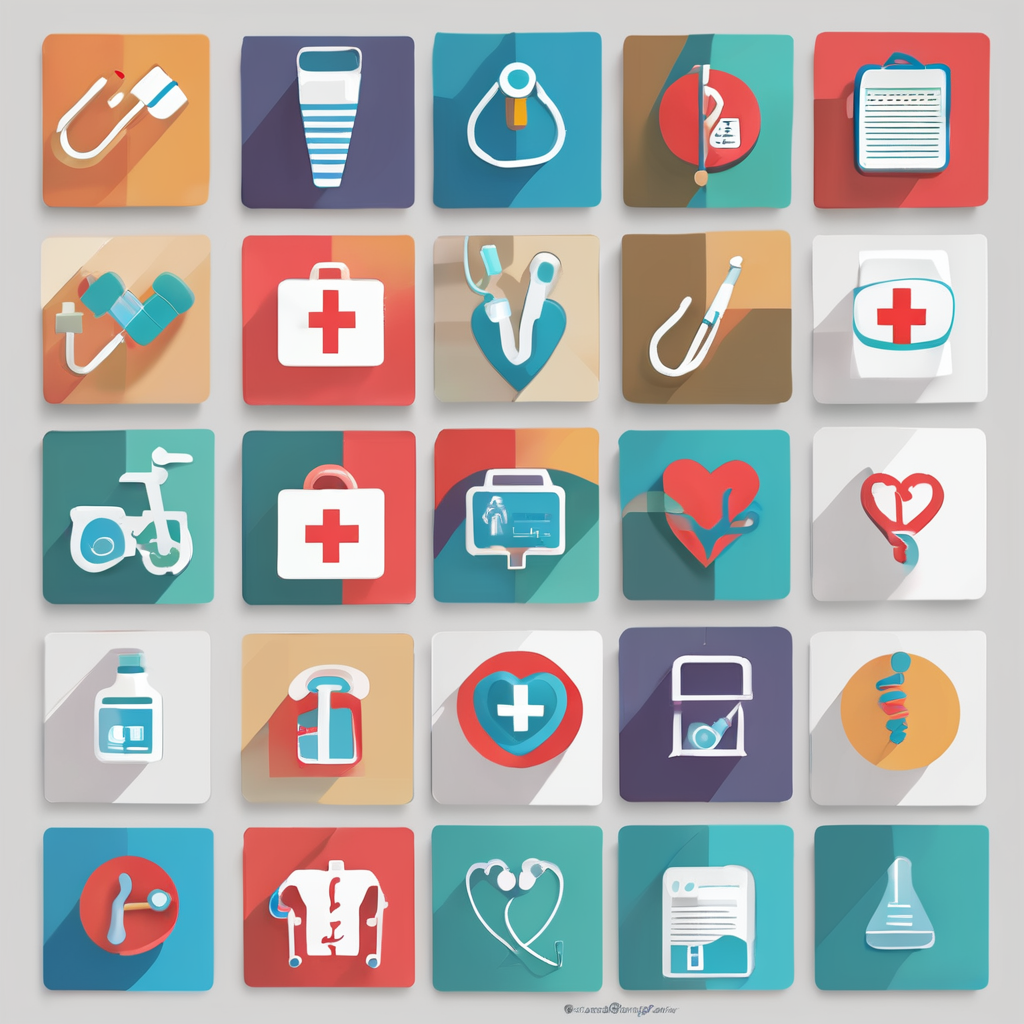Latest Developments in UK Healthcare Technology
Recent years have seen major breakthroughs in UK healthcare technology, particularly in AI in healthcare, digital records, and telemedicine growth across both NHS and private sectors. Since 2022, digital health innovations have accelerated with several notable pilot programs transitioning into nationwide rollouts. For example, NHS trusts have expanded AI-based diagnostic tools, improving imaging interpretation accuracy and speeding up treatment pathways.
Adoption rates are rising steeply; over 60% of NHS trusts now integrate electronic health records (EHRs) with AI-driven decision support, which enhances data availability for clinicians. Telemedicine use has surged, with virtual consultations increasing patient access and reducing waiting times. These technologies improve clinical outcomes by enabling earlier diagnosis and personalized treatment regimens.
This might interest you : How Can Innovations in UK Healthcare Transform Future Health Outcomes?
Furthermore, digital health innovation in the UK includes remote monitoring devices that assist chronic disease management. Using patient-generated data, healthcare providers can intervene earlier, reducing hospitalization rates. These advances exemplify UK healthcare progress, illustrating how technology reshapes care delivery while striving for efficiency and better patient experiences.
However, success depends heavily on sustained investment and collaboration between NHS and private sector tech firms to maintain momentum and scale. The integration of AI and digital health tools represents a pivotal evolution in the UK healthcare landscape.
Also read : How Can Changes in UK Health Policies Impact Everyday Life?
Government and NHS Initiatives Driving Technology Adoption
The NHS Long Term Plan outlines ambitious goals to harness digital health innovations, emphasizing expanded use of AI in healthcare and enhancing digital infrastructure by 2025. Key targets include widespread adoption of electronic records and AI-assisted diagnostics to improve patient pathways.
To achieve this, the government has allocated significant healthcare funding, notably establishing the NHS AI Lab to accelerate AI research and deployment within the NHS. This initiative supports pilot projects scaling to nationwide implementation, fostering collaboration between the NHS and private technology firms. For instance, investments in interoperable digital systems reduce fragmentation in patient data, addressing longstanding challenges.
Moreover, the NHS digital transformation agenda prioritizes training healthcare staff to better utilise technology, strengthening digital skills to match infrastructure advances. Public sector partnerships with innovators drive the development of tailored AI tools, ensuring solutions meet clinical needs effectively.
By combining strategic funding with cross-sector collaboration, UK healthcare technology evolves rapidly under government guidance. This reflects a dedicated push to align policy with practical innovation, positioning the NHS as a leader in the digital healthcare revolution.
Latest Developments in UK Healthcare Technology
Since 2022, UK healthcare technology has advanced notably, especially in AI in healthcare, digital records, and telemedicine across NHS and private sectors. Pilot programs, such as AI-assisted diagnostic tools in radiology, have moved into broader national rollouts, enhancing image analysis speed and precision. This transition highlights a key milestone in UK healthcare progress—bridging innovation with routine clinical practice.
Adoption rates reflect this momentum: over 60% of NHS trusts have integrated electronic health records combined with AI-driven decision support systems. This integration enhances clinician access to comprehensive patient data, fostering informed, timely decisions. Telemedicine expansions have also transformed patient care by increasing accessibility and reducing waiting times, directly improving clinical outcomes.
Additionally, remote monitoring devices are widely deployed, enabling continuous patient data flow for chronic condition management. This helps clinicians anticipate complications and intervene earlier, lowering hospital admissions. These digital health innovations illustrate UK healthcare’s shift toward proactive, data-informed care, raising quality standards while streamlining workflows.
In sum, combining AI tools, digital records, and telehealth innovations yields measurable benefits—optimising care pathways and supporting sustainable healthcare delivery across the UK.
Latest Developments in UK Healthcare Technology
Since 2022, UK healthcare technology has made significant strides, particularly in the areas of AI in healthcare, digital records, and telemedicine. These advances are not limited to pilot projects but have expanded into full nationwide rollouts, demonstrating practical application and scalability. A prime example includes AI-powered diagnostic tools that have enhanced imaging interpretation accuracy, facilitating quicker, targeted treatment decisions within the NHS and private sectors.
Adoption statistics reveal that over 60% of NHS trusts now incorporate electronic health records enriched by AI decision-support systems. This fusion improves clinician access to comprehensive, real-time data, leading to more informed and timely clinical decisions. The integration of telemedicine platforms has also surged, significantly increasing patient access to care while reducing wait times and alleviating pressure on healthcare facilities.
Moreover, continuous innovation in digital health innovations enables remote patient monitoring, enabling earlier intervention for chronic disease management. These combined advancements reflect ongoing UK healthcare progress focused on improving outcomes, optimising workflows, and supporting sustainable, patient-centred care delivery. The emphasis on practical deployment beyond research stages underscores a commitment to embedding technology seamlessly into everyday healthcare settings.
Latest Developments in UK Healthcare Technology
Since 2022, the UK healthcare technology landscape has seen significant breakthroughs, particularly within AI in healthcare, digital health innovations, and telemedicine. Across both the NHS and private sectors, pilot programs testing AI-powered diagnostics and remote monitoring have transitioned into nationwide rollouts, marking a decisive step in integrating technology into routine care.
Adoption rates highlight this trend: over 60% of NHS trusts now employ electronic health records combined with AI-driven decision support systems. These advances enhance clinicians’ ability to access comprehensive patient data, improving diagnostic accuracy and accelerating treatment decisions. Notably, telemedicine platforms have expanded substantially, increasing patient access while cutting waiting times and alleviating clinical bottlenecks.
The impacts on clinical outcomes are increasingly measurable. For example, AI-assisted imaging tools reduce diagnostic errors and support early intervention, which directly improves patient prognosis. Remote monitoring technologies empower ongoing chronic disease management, lowering hospitalization rates by enabling timely clinical interventions.
Together, these developments exemplify UK healthcare progress focused on creating more efficient, patient-centred care pathways. The ongoing scale-up of AI and digital solutions demonstrates a sustained commitment to embedding technology deeply within healthcare delivery systems, fostering innovation that benefits both patients and providers alike.
Latest Developments in UK Healthcare Technology
Since 2022, the landscape of UK healthcare technology has advanced dramatically through focused efforts in AI in healthcare, digital records, and telemedicine implementations. These digital health innovations have evolved beyond pilot phases to encompass nationwide rollouts, reflecting a strategic move to integrate technology across both NHS and private sectors.
Key breakthroughs include the deployment of AI-powered diagnostic tools that enhance imaging accuracy and expedite clinical decisions. This technology significantly improves diagnostic precision, leading to faster, more targeted treatments. Telemedicine platforms have expanded rapidly, increasing patient access while decreasing waiting periods, which contributes to more efficient healthcare delivery.
Adoption metrics reveal that more than 60% of NHS trusts now utilise electronic health records paired with AI-driven decision support systems. This integration grants clinicians comprehensive, real-time patient data and supports better-informed clinical decisions. Moreover, remote patient monitoring devices have been widely adopted to manage chronic diseases proactively, resulting in measurable reductions in hospital admissions.
Collectively, these advancements showcase ongoing UK healthcare progress. The synergy of AI innovation, enhanced digital records, and telehealth solutions fosters a more interconnected, efficient, and patient-centred NHS ecosystem.


